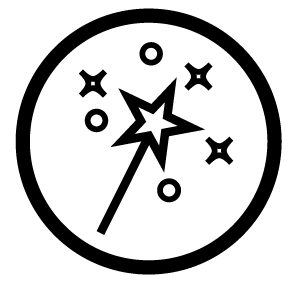Het begin!
It is an ancient Mariner,
And he stoppeth one of three.
'By thy long grey beard and glittering eye,
Now wherefore stopp'st thou me?
The Bridegroom's doors are opened wide,
And I am next of kin;
The guests are met, the feast is set:
May'st hear the merry din.'
He holds him with his skinny hand,
'There was a ship,' quoth he.
'Hold off! unhand me, grey-beard loon!'
Eftsoons his hand dropt he.
He holds him with his glittering eye -
The Wedding-Guest stood still,
And listens like a three years' child:
The Mariner hath his will.
The Wedding-Guest sat on a stone:
He cannot choose but hear;
And thus spake on that ancient man,
The bright-eyed Mariner.
'The ship was cheered, the harbour cleared,
Merrily did we drop
Below the kirk, below the hill,
Below the lighthouse top.
© Oxford University Press, 1912/1978.
^ Terug naar boven
Algemeen
• ‘Absence’; ‘Ad Vilmum Axiologum’; ‘Addressed to a Young Man of Fortune’; ‘Alcaeus to Sappho’; ‘Alice Du Clos’; ‘Angel Visitant, An’; ‘Anna and Harland’; ‘Answer to a Child’s Question’; ‘Anthem’; ‘Apologia Pro Vita Sua’;
• ‘Ballad of the Dark Ladié, The’; ‘Blossoming of the Solitary Date-tree, The’; ‘British Stripling’s War-song, The’;
• ‘Catullian Hedecasyllables’; ‘Character, A’; ‘Charity in Thought’; ‘Child’s Evening Prayer, A’; ‘Christabel’; ‘Christmas Carol, A’; ‘Coeli Enarrnat’; ‘Cologne’; ‘Complaint of Ninathóma, The’; ‘Constancy to an Ideal Object’;
• ‘Day-dream, A’ (2); ‘Dejection: An Ode’; ‘Delinquent Travellers, The’; ‘Desire’; ‘Destiny of Nations, The’; ‘Destruction of the Bastille’; ‘Devil’s Thoughts, The’; ‘Devonshire Roads’; ‘Domestic Peace’; ‘Dungeon, The’; ‘Dura Navis’; ‘Duty Surviving Self-love’;
• ‘Easter Holidays’; ‘Effusion at Evening, An’; ‘Elegy’; ‘Eolian Harp, The’; ‘Epitaph on a Infant’; ‘Epitaph on an Infant’; ‘Epitaph’; ‘Epitaphium Testamentarium’; ‘Exchange, The’; ‘Exile, An’;
• ‘Faded Flower, The’; ‘Faith, Hope and Charity’; ‘Fancy in Nubibus’; ‘Farewell to Love’; ‘Fears in Solitude’; ‘Fire, Famine, and Slaughter’; ‘First Advent of Love’; ‘For a Market-clock’; ‘Forbearance’; ‘Foster-Mother’s Tale, The’; ‘Fragment Found in a Lecture-room, A’; ‘France, An Ode’; ‘From the German’; ‘Frost at Midnight’;
• ‘Garden of Boccaccio, The’; ‘Genevieve’; ‘Gentle Look, The’; ‘Good, Great Man, The’;
• ‘Happiness’; ‘Happy Husband, The’; ‘Hexameters’; ‘Homeless’; ‘Homeric Hexameter, The’; ‘Home-sick’; ‘Honour’; ‘Hour when We Shall Meet again, The’; ‘Human Life’; ‘Humility the Mother of Charity’; ‘Hunting Song’; ‘Hymn before Sunrise in the Vale of Chamouni’; ‘Hymn to the Earth’; ‘Hymn, A’;
• ‘Imitated from Ossian’; ‘Imitated from the Welsh’; ‘Imitations’; ‘Improvisatore, The’; ‘Inscription for a Fountain on a Heath’; ‘Inscription for a Seat by the Road …’; ‘Inside the Coach’; ‘Invocation, An’; ‘Israel’s lament’;
• ‘Julia’;
• ‘Keepsake, The’; ‘Kiss, The’; ‘Kisses’; ‘Knight’s Tomb, The’; ‘Kubla Khan’;
• ‘Lewti’; ‘Life’; ‘Limbo’; ‘Lines at Shurton Bars’; ‘Lines Composed in a Concert-room’; ‘Lines in the Manner of Spenser’; ‘Lines on a Friend’; ‘Lines to W.L.’; ‘Lines’ (10); ‘Love and Friendship Opposite’; ‘Love, Hope, and Patience in Education’; ‘Love’; ‘Love’s Apparition and Evanishment’; ‘Love’s Burial Place’; ‘Love’s Sanctuary’; ‘Lover’s Complaint to His Mistress, A’;
• ‘Mad Monk, The’; ‘Madman and the Lethargist, The’; ‘Mahomet’; ‘Mathematical Problem, A’; ‘Melancholy’; ‘Metrical Feet’; ‘Monody on a Tea-kettle’; ‘Monody on the Death of Chatterton’; ‘Music’; ‘My Baptismal Birth-day’;
• ‘Names’; ‘Ne Plus Ultra’; ‘Nightingale, The’; ‘Night-scene, The’; ‘Nil Pejus Est Caelibe Vita’; ‘Nose, The’; ‘Not at Home’;
• ‘Ode in the Manner of Anacreon, An’; ‘Ode to Georgiana, Duchess of Devonshire’; ‘Ode to the Departing Year’; ‘Ode to the Rain, An’; ‘Ode to Tranquillity’; ‘Ode’; ‘Old Man of the Alps, The’; ‘On a Cataract’; ‘On a Discovery Made Too Late’; ‘On a Lady Weeping’; ‘On a Late Connubal …’; ‘On an Infant’; ‘On Bala Hill’; ‘On Donne’s Poetry’; ‘On Imitation’; ‘On My Joyful Departure’; ‘On Observing a Blossom …’; ‘On Receiving an Account ...’; ‘On Revisiting the Sea-shore’; ‘On Seeing a Youth’; ‘On the Christening of a Friend’s Child’; ‘Outcast, The’; ‘Ovidian Elegiac Metre, The’;
• ‘Pain’; ‘Pains of Sleep, The’; ‘Pang More Sharp than All, The’; ‘Pantisocracy’; ‘Parliamentary Oscillators’; ‘Perspiration. A Travelling Eclogue’; ‘Phantom or Fact’’; ‘Phantom’; ‘Picture, The’; ‘Pity’; ‘Progress of Vice’; ‘Psyche’;
• ‘Quae Nocent Docent’;
• ‘Rash Conjurer, The’; ‘Raven, The’; ‘Reason for Love’s Blindness’; ‘Reason’; ‘Recantation’; ‘Recollections of Love’; ‘Reflections on Having Left a Place of Retirement’; ‘Religious Musings’; ‘Reproof and Reply, The’; ‘Rime of the Ancient Mariner, The’; ‘Rose, The’;
• ‘Sancti Dominici Pallium’; ‘Self-Knowledge’; ‘Separation’; ‘Sigh, The’; ‘Silver Thimble, The’; ‘Snow-drop, The’; ‘Something Childish, but Very Natural’; ‘Song’ (3); ‘Songs of the Pixies’; ‘Sonnet’ (9); ‘Sonnets Attempted in the Manner of Contemporary Writers’; ‘Sonnets on Eminent Characters’; ‘Stranger Minstrel, A’; ‘Suicide Argument, The’; ‘Sunset, A’;
• ‘Talleyrand to Lord Grenville’; ‘Tears of a Grateful People, The’; ‘Tell’s Birth-place’; ‘This Lime-tree Bower My Prison’; ‘Thought Suggested by a View, A’; ‘Three Graves, The’; ‘Time, Real and Imaginary’; ‘To _’; ‘To a Friend’ (2); ‘To a Lady’ (2); ‘To a Primrose’; ‘To a Young Ass’; ‘To a Young Friend’; ‘To a Young Lady’ (2); ‘To an Infant’; ‘To an Unfortunate Woman at the Theatre’; ‘To an Unfortunate Woman’; ‘To Asra’; ‘To Disappointment’; ‘To Fortune’; ‘To Mary Pridham’; ‘To Matilda Betham from a Stranger’; ‘To Miss A.T.’; ‘To Miss Brunton’; ‘To Nature’; ‘To the Author of Poems’; ‘To the Author of The Robbers’; ‘To the Evening Star’; ‘To the Muse’; ‘To the Nightingale’; ‘To the Rev. George Coleridge’; ‘To the Rev. W.J. Hort’; ‘To the Young Artist’; ‘To Two Sisters’; ‘To William Wordsworth’; ‘Tombless Epitaph, A’; ‘Translation of a Passage in Ottfried’s …’; ‘Translation’ (2); ‘Two Founts, The’; ‘Two Round Spaces on the Tombstone, The’;
• ‘Ver Perpetuum’; ‘Verses’; ‘Virgin’s Cradle-hymn, The’; ‘Visionary Hope, The’; ‘Visit of the Gods, The’;
• ‘Wanderings of Cain, The’; ‘Water Ballad’; ‘Westphalian Song’; ‘What Is Life?’; ‘Wish, A’; ‘With Fielding’s Amelia’; ‘Work without Hope’; ‘Written after a Walk before the Supper’;
• ‘Youth and Age’.
^ Terug naar boven
Boekinformatie
ERK Niveau:
C1Schrijver:
Samuel Taylor ColeridgeJaar van uitgave:
1912Aantal pagina's:
614Tijd waarin het verhaal zich afspeelt:
1800-1850Plaats van handeling:
Many placesBijzonderheden:
Een bundel met daarin de gedichten van Samuel Taylor Colerdige.^ Terug naar boven
Het boek - onderwerp
IS HET BOEK VOOR JOU INTERESSANT?
De bundel ‘Poetical Works’ bevat alle gedichten van Coleridge, samen met losse fragmenten en allerlei vroegere versies van gedichten. Ze zullen zeker niet voor elke lezer toegankelijk zijn, maar Coleridge wordt wel gezien als één van de belangrijkste Engelse Romantische dichters, samen met William Blake, William Wordsworth, John Keats, Percy Bysshe Shelley en Lord Byron.
Samuel Taylor Coleridge is wereldberoemd geworden met gedichten als ‘The Rime of the Ancient Mariner’ en ‘Kublan Khan’.
WAT MOET JE WETEN?
‘Poetical Works’ werd na de dood van Coleridge uitgebracht. Tijdens zijn leven werden zijn gedichten soms in tijdschriften of anthologieën gepubliceerd, vaak met behulp van zijn goede vriend William Wordsworth. Coleridge zelf werd regelmatig geplaagd door psychische problemen, voor een deel te wijten aan zijn drugsgebruik.
^ Terug naar boven
Het boek - Moeilijkheid
DE TAAL
De taal van ‘Poetical Works’ is moeilijk, maar zeker niet onoverkomelijk. Veel verhalende gedichten zijn heel goed leesbaar.
DE TAAL EN HET VERHAAL
Qua taal is de bundel regelmatig lastig.
Dat zijn de gedichten vaak ook. Ze zijn soms toegankelijk, soms verwarrend. Maar aan de andere kant zijn er gedichten die geniaal zijn (oriënteer je maar eens op het internet om er meer over te weten te komen).
Op basis van deze eigenschappen is ‘Poetical Works’ een boek met een literair niveau C 4b en een taal-(ERK-)niveau C1.
Schrijfstijl:
Coleridge heeft een voorkeur voor exotische plaatsen en sprookjesachtige settings: dat wordt duidelijk uit veel gedichten. Daarnaast heeft hij ook ‘gewone’ gedichten: over vrienden en bekenden, over kinderen en ouden van dagen, over bevriende kunstenaars.
^ Terug naar boven
Het boek - het verhaal
Actie:
‘Poetical Works’ bevat verhalen met vaak weinig actie.
Tijd:
De gebeurtenissen in de roman spelen zich af in de jaren 1800-1850.
Plaats:
De setting van ‘Poetical Works’ is meerdere plaatsen – niet alleen in Groot-Brittannië, maar ook elders in de wereld (vaak op exotische plekken).
Verhaallijn:
Er zijn veel verschillende verhaallijnen in ‘Poetical Works’.
Verteller:
De bundel heeft ik-vertellers en auctoriale vertellers.
^ Terug naar boven
Het boek - de karakters
Hoofdkarakters:
Het hoofdkarakter in ‘Poetical Works’ is:
• De ik/verteller, de dichter.
Bijfiguren:
De belangrijkste bijfiguren in ‘Poetical Works’ zijn:
• Geliefden, familieleden en vrienden van de dichter;
• Mythische en mythologische figuren.
^ Terug naar boven
Het boek - verder
Film:
Verschillende gedichten uit ‘Poetical Works’ zijn verfilmd (zolas ‘The Rime of the Ancient Mariner’ en ‘Kubla Khan’).
Overig:
Veel gedichten van Coleridge worden tot op de dag van vandaag gelezen en ze hebben veel artiesten geïnspireerd bij hun kunst. Zo heeft de Engelse hardrockband ‘Iron Maiden’ een deel van het lange gedicht ‘The Rime of the Ancient Mariner’ op muziek gezet. Ook de setting en sfeer van ‘Kubla Khan’ heeft musici en schilders beïnvloed: de Britse band Electric Light Orchestra wijdde bijvoorbeeld een heel album aan het mythische rijk Xanadu..
^ Terug naar boven
Auteur en Werken
Link naar pagina over auteur
-->Informatie over Samuel Taylor Coleridge.^ Terug naar boven
Meer
Leessuggesties:
Als je dit een mooi boek vond, zou je ook kunnen lezen:
• Complete Writings van William Blake
• Poetical Works van John Keats
• Poems 1814-1816 van Percy Bysshe Shelley
Citaat:
In Xanadu did Kubla KhanA stately pleasure-dome decree:
Where Alph, the sacred river, ran
Through caverns measureless to man
Down to a sunless sea.
So twice five miles of fertile ground
With walls and towers were girdled round;
And there were gardens bright with sinuous rills,
Where blossomed many an incense-bearing tree;
And here were forests ancient as the hills,
Enfolding sunny spots of greenery.
(From ‘Kubla Khan’)
Vragen over het boek:
Analyseer de onderstaande gedichten:
1. ‘Christabel’
2. ‘The Rime of the Ancient Mariner’
3. ‘Kubla Khan’
4. ‘Dejection: An Ode’
^ Terug naar boven



Comments are closed.